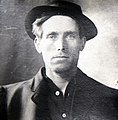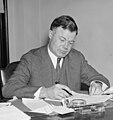
Introduction

- In trade unions, workers campaign for higher wages, better working conditions and fair treatment from their employers, and through the implementation of labour laws, from their governments. They do this through collective bargaining, sectoral bargaining, and when needed, strike action. In some countries, co-determination gives representatives of workers seats on the board of directors of their employers.
- Political parties representing the interests of workers campaign for labour rights, social security and the welfare state. They are usually called a labour party (in English-speaking countries), a social democratic party (in Germanic and Slavic countries), a socialist party (in Romance countries), or sometimes a workers' party.
- Though historically less prominent, the cooperative movement campaigns to replace capitalist ownership of the economy with worker cooperatives, consumer cooperatives, and other types of cooperative ownership. This is related to the concept of economic democracy.
The labour movement developed as a response to capitalism and the Industrial Revolution of the late 18th and early 19th centuries, at about the same time as socialism. The early goals of the movement were the right to unionise, the right to vote, democracy and the 40-hour week. As these were achieved in many of the advanced economies of western Europe and north America in the early decades of the 20th century, the labour movement expanded to issues of welfare and social insurance, wealth distribution and income distribution, public services like health care and education, social housing and common ownership. (Full article...)
Selected article
The Spartacist uprising (German: Spartakusaufstand), also known as the January uprising (Januaraufstand) or, more rarely, Bloody Week, was an armed uprising that took place in Berlin from 5 to 12 January 1919. It occurred in connection with the German revolution that broke out just before the end of World War I. The uprising was primarily a power struggle between the supporters of the provisional government led by Friedrich Ebert of the Majority Social Democratic Party of Germany (MSPD), which favored a social democracy, and those who backed the position of the Communist Party of Germany (KPD) led by Karl Liebknecht and Rosa Luxemburg, which wanted to set up a council republic similar to the one established by the Bolsheviks in Russia. The government's forces were victorious in the fighting.
The uprising began with mass demonstrations and strikes called by the parties of the radical left to protest the dismissal of Berlin's chief of police. Taken by surprise at the size of the turnout and the protestors' spontaneous occupation of newspaper buildings and printing companies, the leaders of the left were unable to agree on how to proceed. As a result, the uprising remained largely without direction. The government responded with military force, including several paramilitary Freikorps units, retook the buildings that had been occupied and violently suppressed the uprising.
The death toll was roughly 150–200, mostly among the insurgents. The most prominent deaths were those of Liebknecht and Luxemburg, who were executed extrajudicially on 15 January, almost certainly with the at least tacit approval of the MSPD-led government. The party's involvement hampered its position throughout the life of the Weimar Republic, although quashing the uprising allowed elections for the National Assembly to take place as scheduled on 19 January 1919. The Assembly went on to write the Weimar Constitution that created the first national German democracy. (Full article...)June in Labor History
Significant dates in labour history.
- June 01 - Matthew Woll died; the United Farm Workers conducted its first strike in 1966 in Texas; the Cananea strike began in 1906 in Mexico
- June 02 - During the 1952 steel strike, the U.S. Supreme Court decided Youngstown Sheet & Tube Co. v. Sawyer; the Child Labor Amendment was adopted by the U.S. Congress; Charles Moyer died
- June 03 - The U.S. Supreme Court decided Hammer v. Dagenhart, outlawing child labor laws; Victor G. Reuther died; Emmanuel Christopher Loblack died
- June 04 - The Amalgamated Association of Iron and Steel Workers affiliated with the CIO; Lou Cunningham was born
- June 05 - Teamsters for a Democratic Union was formed; the U.S. Supreme Court decided Hague v. CIO; the California Agricultural Labor Relations Act became law
- June 06 - Don Farrell was born; CUPE 3902 was founded; N. M. Perera was born; Thomas Jackson died
- June 07 - The Steel Workers Organizing Committee was founded; the Matignon Agreements ended a general strike in 1936 in France; John Willcock died
- June 08 - Robert Lee Hill was born; Emil Rieve was born; Percy Wells was born
- June 09 - R. J. Thomas was born
- June 10 - The U.S. Supreme Court decided Anderson v. Mt. Clemens Pottery Co.; Frank Hayes died
- June 11 - John L. Lewis died; the Federación Sindical de Trabajadores Mineros de Bolivia was founded; José Bové was born
- June 12 - The 1981 Major League Baseball strike began in the U.S. and Canada; Philip Vera Cruz died
- June 13 - Israel Kugler was born; Tony Mazzocchi was born
- June 14 - 1911 Liverpool general transport strike began in the U.K.; government troops triggered the 2006 Oaxaca protests in Mexico
- June 15 - The Metal Trades Department, AFL–CIO was founded
- June 16 - Dave Beck was born
- June 18 - Battle of Ballantyne Pier occurred in Canada in 1935; the Battle of Orgreave occurred in 1984 in the U.K.
- June 19 - Nelson Cruikshank died; John W. Brown died; Tanong Po-arn disappeared
- June 20 - The American Railway Union was founded; Jim Bacon died; Evelyn Dubrow died; Alphonse Verville died
- June 21 - Nelson Cruikshank was born; the Herrin massacre occurred in 1922 in the U.S.; the U.S. Supreme Court decided United States v. Congress of Industrial Organizations; the "Molly Maguires" were hanged in the U.S.; Frank Drozak died
- June 22 - Riots occurred during the Grunwick dispute in 1976 in the U.K.; Paul Hall died; the U.S. Supreme Court decided Burlington Northern Railway v. White; the Sheffield Trades and Labour Council was founded; John Marius Trana was born
- June 23 - The Taft–Hartley Act became law in the U.S.
- June 24 - Terence V. Powderly died, Agnes Nestor was born
- June 25 - Winnipeg general strike of 1919 ended; the Smith–Connally Act became law in the U.S.
- June 26 - Timothy D. Murphy died; the Alliance of Concerned Teachers was formed; John W. Brown died; Emma Miller was born
- June 27 - The 1949 Australian coal strike began; the Industrial Workers of the World was founded; the Bureau of Labor Statistics was formed in the U.S.
- June 28 - President Grover Cleveland signed legislation establishing Labor Day in the U.S.; Alfred Miodowicz was born; Vere Bird died
- June 29 - The National Labor Relations Board was created; a lockout triggered the Homestead Strike; the merger of the blacksmiths and boilermakers formed the International Brotherhood of Boilermakers; Edward J. Carlough died; the U.S. Supreme Court decided Communications Workers of America v. Beck
- June 30 - Former labor union official Tomiichi Murayama became Prime Minister of Japan
More Did you know (auto-generated)
- ... that in 1969, the first women's strike for equal pay in the Netherlands was called in a cigar factory in Nieuwe Pekela?
- ... that Marco van Basten's strike in the UEFA Euro 1988 Final was described as "perhaps the most iconic goal in UEFA European Championship history"?
- ... that the 1937 Fleischer Studios strike in New York City was the first major labor strike in the animation industry?
- ... that a strike by uranium miners in 1974 in Ontario led to the creation of the Occupational Health and Safety Act?
- ... that the 2016 Jim Beam strike was the first labor strike in the company's history?
- ... that the 1913 Studebaker strike is regarded as the first major labor strike in the automotive industry?
Related Portals
Selected image
Selected Quote
Ten thousand times has the labor movement stumbled and bruised itself. We have been enjoined by the courts, assaulted by thugs, charged by the militia, traduced by the press, frowned upon in public opinion, and deceived by politicians. But notwithstanding all this and all these, labor is today the most vital and potential power this planet has ever known, and its historic mission is as certain of ultimate realization as is the setting of the sun."
|
— Eugene V. Debs. |
Did you know
- ...that at the 1974 Coalition of Labor Union Women convention, Myra Wolfgang declared "...there are 3,000 women in Chicago and they didn't come here to swap recipes!"?
- ...that the anarcho-syndicalist Argentine Workers' Federation was the country's first national labor confederation?
- ...that the Central Commission of German Trade Unions organized 75 percent of unionized German workers in Czechoslovakia in 1921?
Topics
Get involved
Associated Wikimedia
The following Wikimedia Foundation sister projects provide more on this subject:
-
Commons
Free media repository -
Wikibooks
Free textbooks and manuals -
Wikidata
Free knowledge base -
Wikinews
Free-content news -
Wikiquote
Collection of quotations -
Wikisource
Free-content library -
Wikiversity
Free learning tools -
Wiktionary
Dictionary and thesaurus
© MMXXIII Rich X Search. We shall prevail. All rights reserved. Rich X Search

















































































